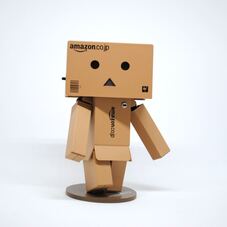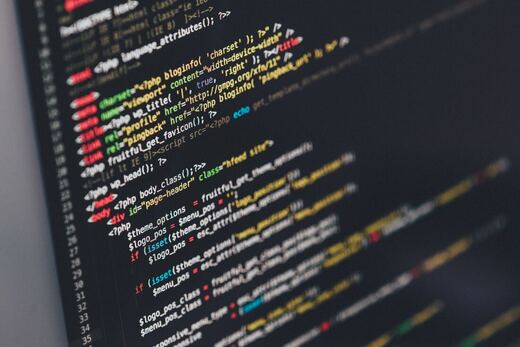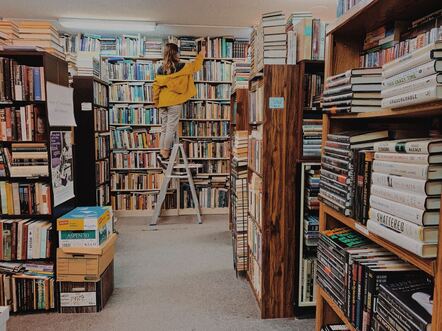In our digital age, much of the information we encounter online is recommended to us; algorithms build a user profile on you: who you are, what you like, where you live, what you’ve bought, among other things. From that, an algorithm can recommend all kinds of things: what news you should look at, what food you should eat, what clothing you should buy. This is why, after browsing for those new shoes, they follow you all over the internet: an algorithm has been tracking your searches. Major companies like Amazon rely on their custom algorithms to entice users to continue using their services and/or to purchase their products. Amazon has a specific method for gathering data, which it uses to recommend you the books you buy. This method is called item-to-item collaborative filtering. In 2003, Amazon released an Industry Report titled: Amazon.com Recommendations Item-to-Item Collaborative Filtering where they compare their filtering system to other methods. The method works like this: rather than trying to match customer-to-customer and recommend items based on similar interests, Amazon’s filtering systems find similarities between the items by “match[ing] each of the user’s purchased and rated items to similar items, then combin[ing] those similar items into a recommendation list.” This means that users are only recommended items that are highly correlated similar items. Amazon claims that this recommendation system is highly effective, and that the quality of recommendations are excellent. Yet as an avid reader and writer, I am concerned. The precision and effectiveness of Amazon’s algorithm creates a “filter bubble,” a term coined by Eli Pariser in his book The Filter Bubble: How the New Personalized Web is Changing What We Read and How We Think. Filter bubbles “create a unique universe of information for each of us […] which fundamentally alters the way we encounter ideas and information.” Pariser provides an example of how Amazon collects data on you to build its recommendations: When you read books on your Kindle, the data about which phrases you highlight, which pages you turn, and whether you read straight through or skip around are all fed back into Amazon’s servers and can be used to indicate what books you might like next. When you log in after a day reading Kindle e-books at the beach, Amazon can subtly customize its site to appeal to what you’ve read: If you’ve spent a lot of time with the latest James Patterson, but only glanced at that new diet guide, you might see more commercial thrillers and fewer health books. But what if health books would be beneficial to us, to our health? We now can begin to see how these algorithms can affect the world and our lives. Amazon filters out all that is unfamiliar and not similar, drastically shrinking a reader’s world. “In the filter bubble,” Pariser argues, “there’s less room for chance encounters that bring insight and learning.” Amazon’s algorithm, which functions by pairing similar items together, does not challenge users with conflicting or novel ideas; ideas outside the bubble don’t exist. The effect is an algorithmic echo chamber, one that “prevent[s] us from coming into contact with the mind-blowing, preconception-shattering experiences and ideas that change how we think about the world and ourselves.” Are Amazon users and readers stuck? There is a surefire way to escape: burst your bubble. And the great news is, bursting your bubble can have a positive effect on yourself and your community. Instead of searching on Amazon for your next book, visit a local library! For just a couple bucks, you’ll have access to a large selection of books to rent at any time, along with access to computers and workshops that many local libraries provide. Or you could visit a local bookstore and support a small business. Each of these options allows you to encounter books and genres you might not have otherwise, allowing you to encounter new ideas and experiences. Online, consumers can shop in different market places to diversify their recommendations. Websites such as bookbub.com, thriftbooks.com, bookoutlet.com are great sources to discover new authors, genres, and ideas (at great prices!). Small presses and literary magazines publish fantastic work and are a great place to discover new authors and works (shameless plug). Supporting these businesses is a win-win! “A world constructed from the familiar is a world in which there is nothing to learn.” Readers should strive to expand the types of books they encounter, and unfortunately, this isn’t possible on Amazon. However, if consumers wish to expand beyond the filter bubble, their journey can not only improve their reading experience, but have a positive impact on others. And don’t worry about breaking up with the algorithm (it never had feelings for you anyway).
0 Comments
Leave a Reply. |
Archives
July 2024
Categories
All
|
|
Glassworks is a publication of Rowan University's Master of Arts in Writing 260 Victoria Street • Glassboro, New Jersey 08028 [email protected] |
All Content on this Site (c) 2024 Glassworks
|




 RSS Feed
RSS Feed
